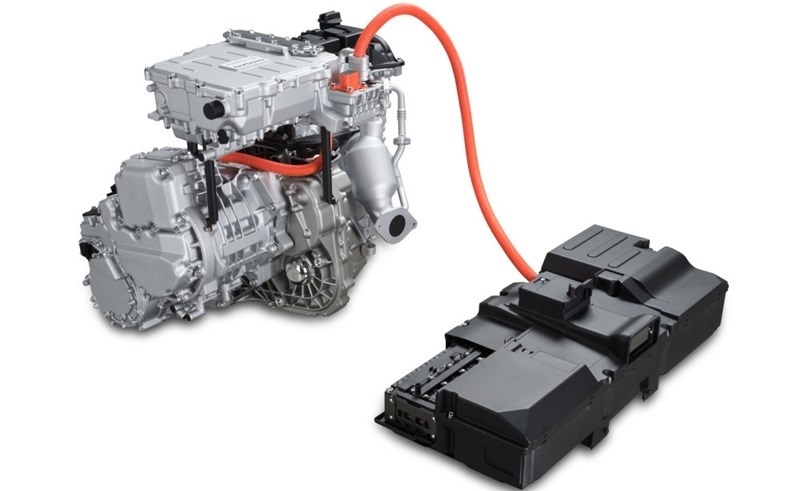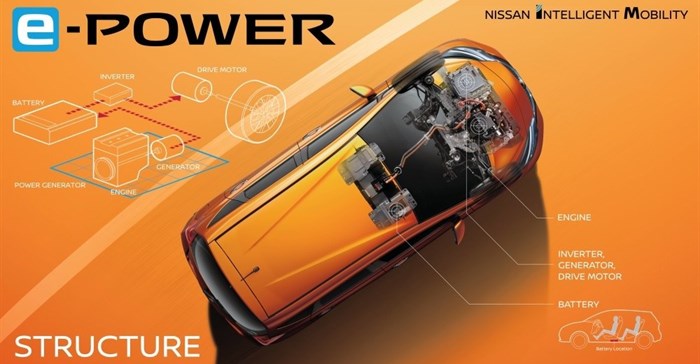Nissan's e-Power drive system has been made available to consumers for the first time, marking a significant milestone in the electrification strategy under Nissan Intelligent Mobility.
e-Power borrows from the EV technology in the pure electric Nissan Leaf. Unlike the Leaf, the drive system adds a small gasoline engine to charge the high-output battery when necessary, eliminating the need for an external charger while offering the same high-output.
The e-Power system, classified as a series-hybrid, features full electric-motor drive, meaning that the wheels are completely driven by the electric motor. The power from a high-output battery is delivered to the e-Power’s compact powertrain comprised of a gasoline engine, power generator, inverter, and a motor. In conventional hybrid systems, a low-output electric motor is mated to a gasoline engine to drive the wheels when the battery is low (or when traveling at high speeds). However, in the e-Power system, the gasoline engine is not connected to the wheels; it simply charges the battery. And unlike a full EV, the power source originates from the engine and not just the battery.

This system structure generally requires a bigger motor and battery because the motor is the only direct source to drive wheels. This has made it hard for the automotive industry to mount the system in compact cars. However, Nissan says it has cracked the code and learned how to minimise and reduce weight, develop more responsive motor control methods and optimise energy management. As a result, the new system uses a smaller battery than the Leaf, but delivers the same driving experience as a full EV.
According to the carmaker, e-Power delivers substantial torque almost instantly, which enhances drive response and results in smooth acceleration. Also, the system operates quietly, much like a full EV. Because the system relies on the engine much less frequently, Nissan says its fuel efficiency is comparable to that of leading conventional hybrids, especially during around-the-town commutes. The new system promises the benefits of an EV without the concern of charging the battery.
The manufacturer said that they are also conducting research and development of the SOFC (Solid Oxide Fuel Cell) fuel-cell vehicle, and will continue to introduce innovative new products into various areas in order to promote the worldwide use of electronic vehicles.



















































